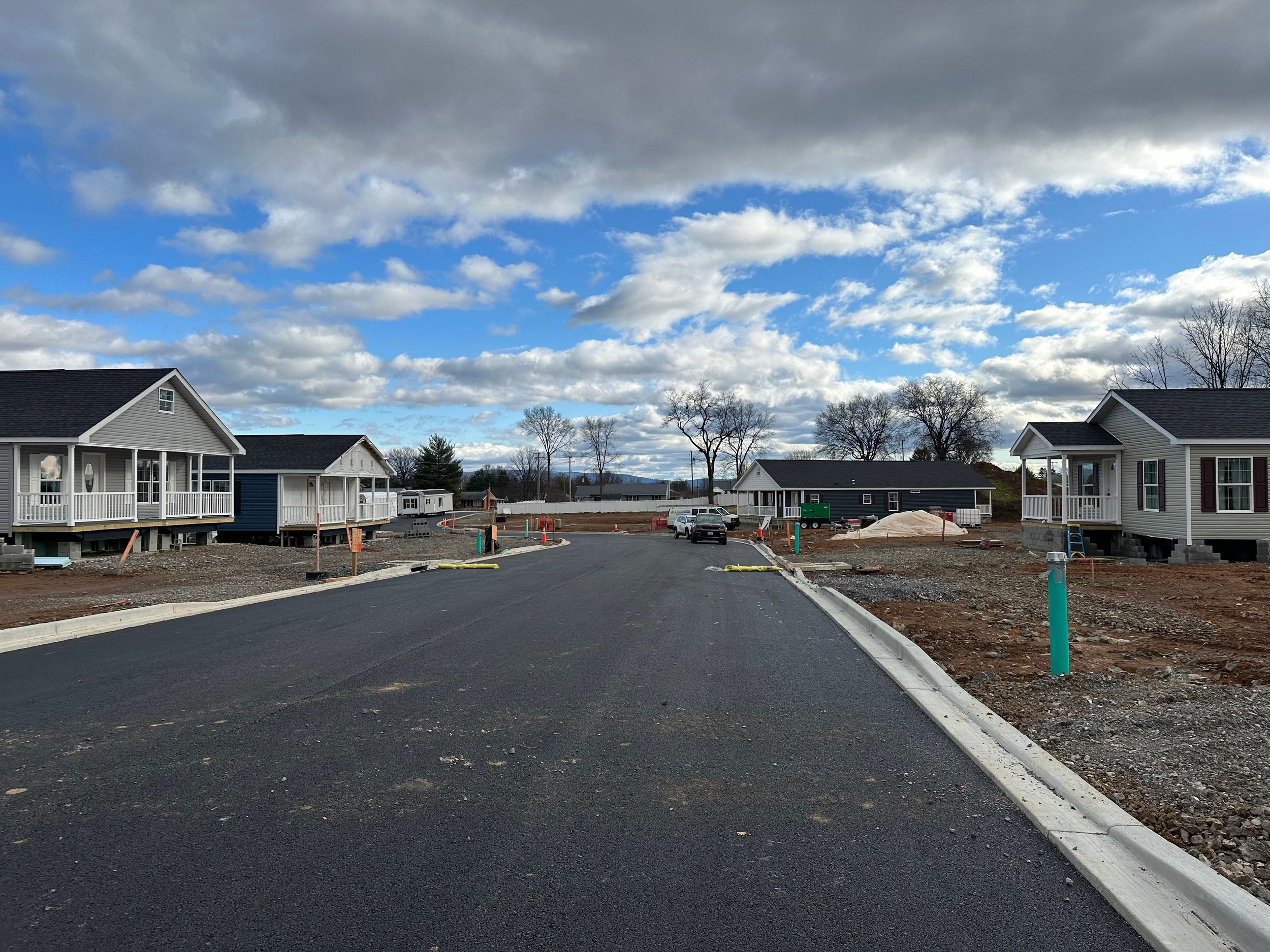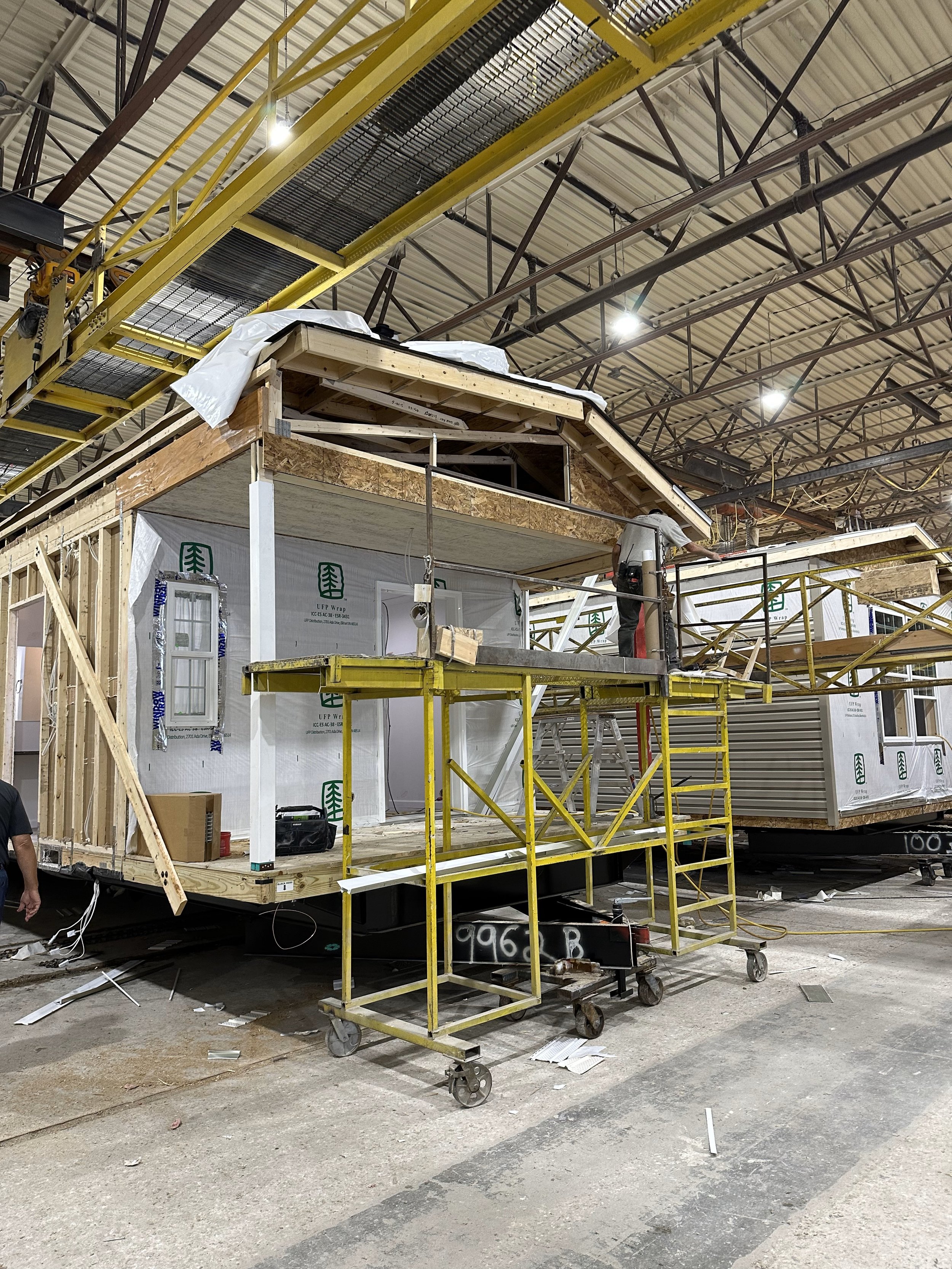
“…manufactured homes have changed a lot in recent years. Today, they may have steeper roofs. They may have a porch. They look much like a traditional single-family home.”
as heard on NPR’s All Things Considered, January 10, 2024
HOMES IN THE HEIGHTS (HNH) BUYER: It's big. It's spacious. I could tell that it was made at a very high caliber.
NPR: …[HNH Buyer] just bought one of these new manufactured homes in a development in Petersburg, Va. He paid a quarter million dollars for it. And he says the relatively cheaper price compared to a stick-built home was a big factor in his decision.
HNH HOMEBUYER: The pricing was, like, I think the best part. With these inflated interest rates in the market right now, to be able to find the house of this caliber for the set price, it's - I don't think you could beat it.
Why Manufactured Housing?
Increasing the usage of manufactured homes is key to creating affordable housing opportunities in the United States. These homes are constructed in a controlled factory environment, which leads to cost savings through efficient production processes and reduced material waste. Additionally, the standardized designs and assembly methods result in quicker construction timelines, lowering labor costs. Manufactured homes can also be more energy-efficient and environmentally friendly, reducing long-term utility expenses for homeowners. Moreover, they provide an opportunity for low and moderate-income individuals and families to achieve homeownership, helping to address the pressing issue of housing affordability in many communities.
Future of Affordable Homeownership
Utilizing manufactured homes for affordable housing becomes even more advantageous when they are placed on permanent foundations. When these homes are affixed to a permanent foundation, they are classified as real property rather than personal property, making them eligible for traditional 30-year Fannie Mae and Freddie Mac conventional mortgages. This shift in classification not only offers more financing options but also helps homeowners build equity in their properties over time. Furthermore, the inclusion of manufactured homes in Fannie Mae and Freddie Mac programs demonstrates a commitment to fulfilling their "Duty to Serve" mandate, which aims to expand housing opportunities for underserved markets, including low and moderate-income families in need of affordable housing. By combining the benefits of permanent foundations and access to conventional mortgage programs, manufactured homes play a crucial role in addressing the affordable housing crisis while promoting stability and financial security for homeowners.
FAQs
-
Manufactured housing refers to homes that are built entirely or primarily in a factory or manufacturing facility. They are built on a single chassis and transported to their destination in one piece. They are typically less expensive than modular or site-built homes and are subject to specific construction and safety standards regulated by federal and state authorities in the United States.
Manufactured housing is an affordable housing option, and these homes can vary in size and layout to accommodate various needs and budgets. They have come a long way in terms of design, quality, and energy efficiency, making them a viable choice for many individuals and families seeking homeownership or affordable housing solutions.
-
The primary difference between a manufactured home and a modular home lies in their construction process and regulatory standards:
Construction Process:
Manufactured Home: Manufactured homes are constructed entirely in a factory and are built on a single chassis. They are transported to their final location as a single unit and typically installed on a permanent foundation. Manufactured homes are designed to meet federal construction and safety standards.
Modular Home: Modular homes are also factory-built, but they are constructed in multiple sections or modules. These modules are transported to the building site and then assembled on a permanent foundation.
Regulatory Standards:
Manufactured Home: Manufactured homes are subject to specific federal and state regulations, including the HUD (U.S. Department of Housing and Urban Development) Code in the United States. This code sets construction and safety standards for manufactured homes to ensure their quality and safety.
Modular Home: Modular homes are typically built to the same local building codes and standards as traditional site-built homes. They undergo inspections during the manufacturing process and at the building site to ensure compliance with these codes.
-
A permanent foundation for a manufactured home offers several significant advantages:
Easier Financing: Homes with permanent foundations are eligible for conventional mortgage loans, which can offer better terms and lower interest rates compared to loans for homes without permanent foundations. This can make homeownership more accessible and affordable.
Stability and Durability: A permanent foundation provides a stable and secure base for the manufactured home. This stability helps the home withstand adverse weather conditions, such as high winds and heavy storms, increasing its overall durability and safety.
Increased Property Value: Homes with permanent foundations generally have higher property values compared to those without. This can be advantageous if you plan to sell the home in the future, as it can potentially lead to a better return on investment.
Energy Efficiency: Permanent foundations allow for better insulation and weatherproofing, which can lead to improved energy efficiency. Lower energy bills and a more comfortable living environment are common benefits.




